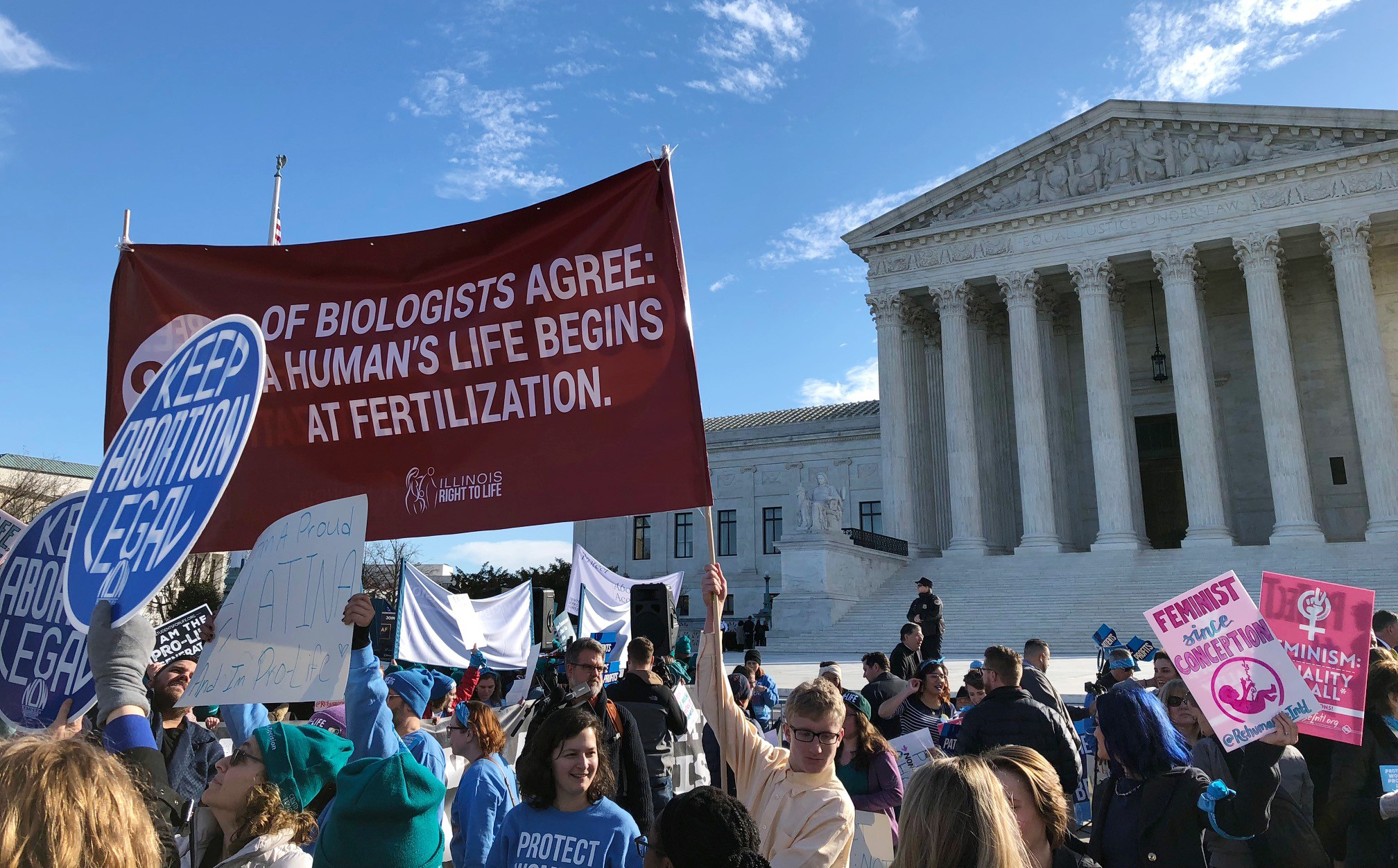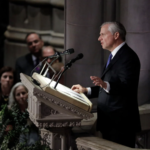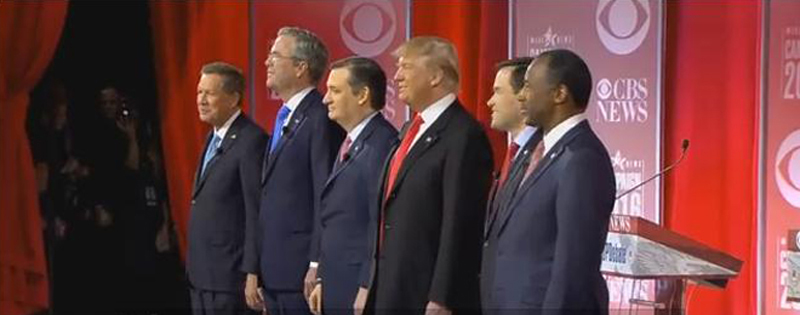
WASHINGTON (BP) — The U.S. Supreme Court grappled Wednesday (March 4) with whether the state of Louisiana can seek to protect the lives and health of women by requiring hospital admitting privileges for doctors who perform abortions.
 The justices appeared closely divided as they heard oral arguments regarding a state law that is similar to one they struck down four years ago. In the 2016 Whole Woman’s Health v. Hellerstedt opinion, the high court ruled 5-3 against a Texas admitting privileges law.
The justices appeared closely divided as they heard oral arguments regarding a state law that is similar to one they struck down four years ago. In the 2016 Whole Woman’s Health v. Hellerstedt opinion, the high court ruled 5-3 against a Texas admitting privileges law.
Lawyers arguing before the justices March 4 offered conflicting views of the two laws. Julie Rikelman of the Center for Reproductive Rights (CRR) said the Louisiana law “is identical to the Texas law and was expressly modeled on it.” Elizabeth Murrill, Louisiana’s solicitor general, told the high court the law, facts, regulatory structure and record are different, and “all of those things dictated a different result.”
An opinion in the case — June Medical Services v. Russo — is expected before the high court’s term ends this summer.
Supporters of the Louisiana law — which requires physicians to have admitting privileges at a hospital within 30 miles of an abortion facility — expressed hope the Supreme Court will uphold what they consider a common-sense requirement.
The case before the high court “shows the extreme and exploitive nature of the abortion industry,” said Russell Moore, president of the Southern Baptist Ethics & Religious Liberty Commission (ERLC). “Louisiana has taken measures to ensure women in this state are shielded from this predatory industry, but the abortion lobby is fighting hard to protect its profit margins and its assault on women and unborn children.
“Evil like this thrives in darkness,” Moore said in written comments, “and my prayer is that the arguments at the Supreme Court today shine light on this industry’s deeply deceptive practices.”
The case offers the high court the opportunity, if it so chooses, to revise the standard on which it based its 2016 decision invalidating the Texas law. In that ruling, the justices overturned a Fifth Circuit Court of Appeals decision, ruling the portion mandating admitting privileges constituted an “undue burden” on a woman’s right to abort her child and was therefore unconstitutional.
The ERLC, joined by the Lutheran Church-Missouri Synod, contended in a friend-of-the-court brief the “undue burden” test is the incorrect standard for laws that regulate abortion doctors. In place of the “undue burden” rule regarding health and safety requirements, the Supreme Court should use a standard from a 1997 opinion that calls for “ordinary rational basis review,” they said in the brief.
The high court’s October 2019 announcement it would rule on the Louisiana law has caused abortion rights advocates to view the action as an ominous sign the justices are poised to reverse their 2016 ruling. They also have warned such a decision will begin the process of effectively overturning Roe v. Wade, the 1973 opinion that legalized abortion nationwide.
Since the decision in the Texas case, President Trump has nominated Neil Gorsuch to replace the late Antonin Scalia, who died in 2016 before that ruling. When Associate Justice Anthony Kennedy retired in 2018, Trump nominated Brett Kavanaugh. The U.S. Senate confirmed Gorsuch in April 2017 and Kavanaugh in October 2018. Both are considered strict constructionists regarding interpretation of the U.S. Constitution and likely votes to support state regulation of abortion providers.
The four remaining associate justices from the majority that struck down the Texas law — Stephen Breyer, Ruth Bader Ginsburg, Elena Kagan and Sonia Sotomayor — all appeared supportive of the arguments on behalf of June Medical Services, which owns an abortion clinic in Shreveport.
Associate Justice Samuel Alito expressed skepticism especially at the arguments offered by Rikelman that an abortion clinic has standing to challenge the law. Associate Justice Brett Kavanaugh asked a couple of questions, and associate justices Clarence Thomas and Neil Gorsuch did not speak.
While Alito, Kavanaugh, Thomas and Gorsuch would appear to be likely votes in support of the law, Chief Justice John Roberts seems to be the deciding vote between the two wings of the high court. At one point, Roberts asked Murrill whether the benefits of the law would be the same in each state.
Alliance Defending Freedom (ADF) lawyers who were in the courtroom believe Roberts is “grappling with this idea of weighing the benefit against the burden,” said ADF Senior Counsel Denise Harle, who did not hear the arguments but debriefed with five lawyers from the organization afterward.
“We should keep in mind that Chief Justice Roberts was in the dissent [in the Texas case] … and fundamentally did not agree with that decision or the confusing test” that decision purported to produce, Harle told Baptist Press.
This case provides an opportunity “to narrow or limit” the ruling on the Texas law, Harle said. “[W]e could probably think of [Roberts] as the swing vote.”
ADF’s lawyers saw the number of questions about whether abortion providers have standing “to challenge a law on behalf of women when women are not challenging the law” was “a really good sign,” she said.
Rep. Mike Johnson, R-La., a Southern Baptist, told reporters outside the court building there is “a long record” in Louisiana of “really gross violations of health and safety standards in the abortion industry. We have more than 20 years of documentation, affidavits of former clinic workers who have come forward and testified to the atrocities. … That’s why the law was necessitated. That’s why it should be upheld.”
Nancy Northup, CRR’s president, said in a March 4 written statement, “We should not have to refight legal battles that we’ve already won, but states like Louisiana are in open defiance of the Constitution and the Supreme Court’s rulings. Once again, the Court must step in to block these clinic shutdown laws and ensure that the promise of Roe v. Wade is realized for all women.”
In addition to Louisiana, 14 other states have enacted some sort of admitting privileges laws, according to the Guttmacher Institute, formerly an affiliate of Planned Parenthood. Those states are Alabama, Arizona, Arkansas, Florida, Indiana, Kansas, Mississippi, Missouri, North Dakota, Oklahoma, South Carolina, Tennessee, Texas and Wisconsin. Courts have blocked enforcement of several of these laws.
In February 2019, the Supreme Court blocked enforcement of the Louisiana law while it was under appeal, but the justices agreed in October to review a Fifth Circuit panel’s 2-1 decision from 2018.
Among those filing friend-of-the-court briefs in support of Louisiana were American Association of Pro-life Obstetricians and Gynecologists, Americans United for Life, the Billy Graham Evangelistic Association, Christian Legal Society, Family Research Council, National Right to Life Committee, U.S. Conference of Catholic Bishops, 207 members of Congress and more than 2,600 women injured by abortion.
The American Bar Association, ACLU, American College of Obstetricians and Gynecologists, Planned Parenthood and 197 congressional members were included in those filing briefs in support of June Medical Services.
The Louisiana measure — introduced by Democrat Rep. Katrina Jackson — gained passage with overwhelming, bipartisan majorities in both houses and was signed into law by Democratic Gov. John Bel Edwards.
A large crowd consisting largely of abortion rights activists gathered outside the Supreme Court building before, during and after the arguments.




















